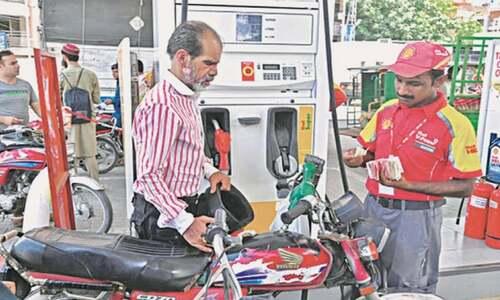KARACHI: The health department has informed senior authorities in the Sindh government that availability of drugs is not more than 60 per cent in public hospitals and dispensaries of the province. The finance department’s slow release of funds and delay in the settlement of an earlier procurement by audit authorities is the reason behind this alarming deficit, it emerged on Friday.
Officials said the shortage of medicines in hospitals in Sindh had been a problem since the beginning of the current fiscal year, which, with just two months to go, affected the operation of health facilities. As each quarter of the year inherited hardships, they multiplied instead of being resolved.
Officials said non-clearance of the bills of contractors and suppliers aggravated the situation, and supplies of medicines started to run out, widening the gap of demand and supply at the cost of precious lives hooked to hundreds of facilities of varied denominations.
The crisis emerged in the aftermath of the Sindh Public Procurement Regulatory Authority (SPPRA) and Accountant General Sindh’s objections on the release of funds for the drugs procured during the first quarter of the current fiscal year without following set procedures. This forced the health department to furnish a summary to the chief minister requesting him to exempt it from the procurement rules just this once as it did it out of emergency situation.
In a summary sent by the provincial health department to the chief minister, it said a Central Procurement Committee (CPC) was constituted in the health department in February last year through which all procurement of drugs, medicines and allied items would be done. The CPC was reconstituted in April and initiated procurement procedure through centralised rate contract but, officials claimed, due to time constraints in July and owing to the emergency the department issued instructions to all health institutions, including the projects in Sindh to procure the drugs, medicines, surgical sundries, disposable or consumables, X-ray films, chemicals and other allied items, only against the first quarter budget of 2014-15 on the basis of rates obtained in the tender of previous fiscal year by “observing all codal formalities under 2010 rules” to meet the urgent need.
All health procuring agencies in Sindh finalised their purchases and bills were submitted to the Accountant General (AG), Sindh for payment. The audit authorities, however, objected that they had certain provisions for ‘emergencies’, but not for ‘urgency’ and asked the health department to seek a one-time exemption from the competent authority – the chief minister.
Officials said they sent the summary to the chief minister for approval for one-time exemption so that the provincial health system may not suffer in its day-to-day operations.
Till this summary is approved by the chief minister, officials said, the problem would continue to persist and thus affect each and every quarter of the current and future fiscal years.
“We hope the matter would be settled soon,” said an official adding that the stock of medicines had already ended in many hospitals.
Officials said major health facilities like Civil Hospital, Karachi and Sindh government hospitals in Liaquatabad, Korangi, New Karachi, Saudabad, Ibrahim Haidery and Lyari General Hospital were facing acute shortages in Karachi, while almost every district hospital in the rest of Sindh suffered similar hardships.
Sources said longstanding dues not cleared by the government forced contractors to stop supplies, transferring the additional burden on patients to spend from their pocket.
Published in Dawn, April 20th, 2015
On a mobile phone? Get the Dawn Mobile App: Apple Store | Google Play














































Dear visitor, the comments section is undergoing an overhaul and will return soon.